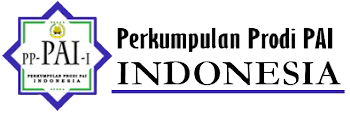PENGARUH PENERAPAN METODE PERMAINAN BINGO DALAM MENINGKATKAN HASIL BELAJAR SISWA PADA MATA PELAJARAN FIQIH DIKELAS VIII MTs NEGERI 1 MODEL PALEMBANG
DOI:
https://doi.org/10.19109/pairf.v3i1.4479Keywords:
Bingo Game Learning Method, Learning OutcomesAbstract
Difficulties of students in understanding the subject matter well and different levels of intelligence as well as a lack of participation and response of students. so students find it difficult to focus in accepting the explanations that are submitted by the teacher. So the method of learning is needed in improving student learning outcomes. This study aims to determine whether or not there is an influence of the application of the Bingo game method in improving student learning outcomes in the subject of Fiqh. This research is using experimental method. The research sample is students of MTs N 1 Palembang model consisting of 43 experimental class students and 44 control class students. Data obtained using tests, and documentation. Then the data collected was analyzed by t test statistics. The results of this study indicate: (1) The average experimental class learning outcomes with a percentage level namely: high category 8 students (19%), 31 students (72%), low 4 students (9%). (2) The averagecontrol class learning outcomes with a percentage level namely:high category 8 students (18%), medium 30 students (68%), low 6 students (14%). (3) There is a significant influence between the learning outcomes of the experimental class students compared to the learning outcomes of the control class. Because the price of t = 5.47> from the significant level of 1.99.












.png)


1.png)



